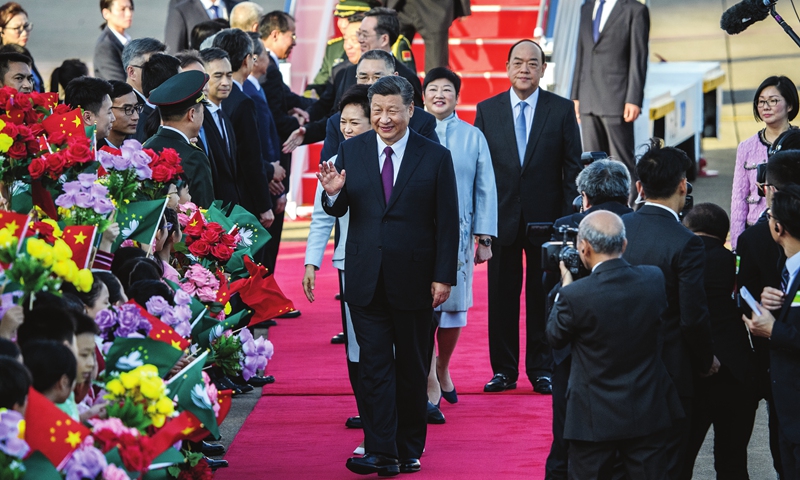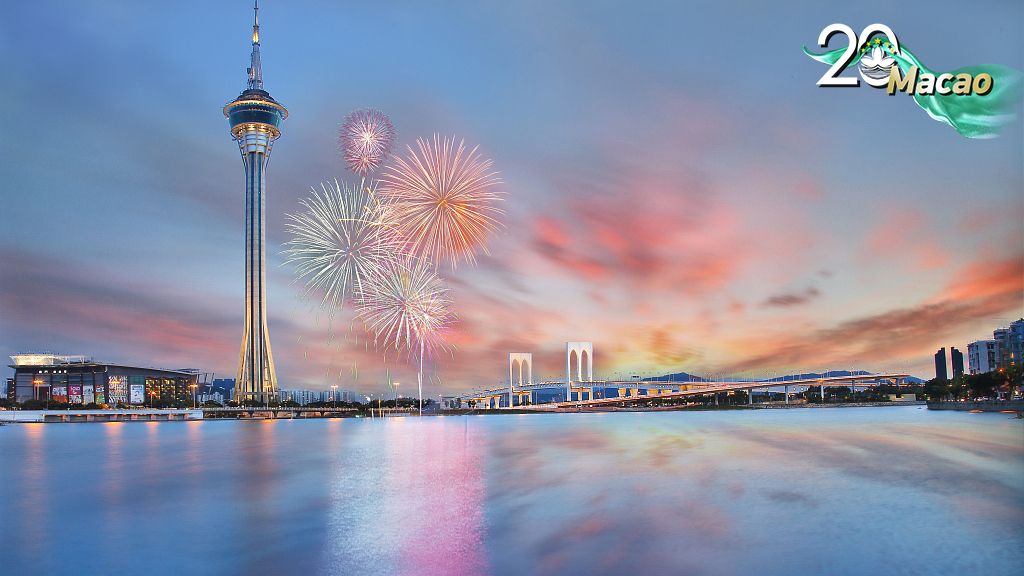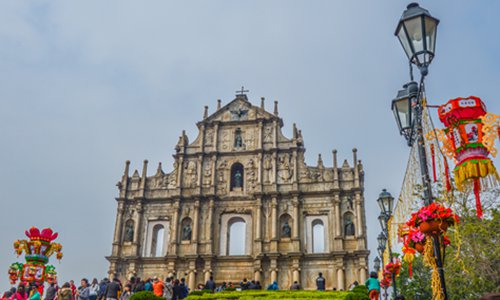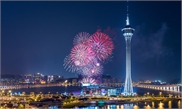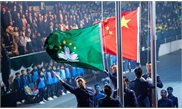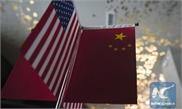AS 2019 comes to a close let us reflect on how we have progressed as a nation in the past year. It’s time to take stock of our achievements and successes, weaknesses and shortcomings.
2019 can be as Charles Dickens wrote in his book, A Tale of Two Cities “It was the best of times, it was the worst of times...
The Government has succeeded in enhancing governance and reducing corruption and has unveiled a new shared prosperity vision. Nevertheless, the nation still remains divided with the state of race relations somewhat fragile and fraying.
Economically, whilst Malaysia has improved its international image and reputation and attracted new foreign investments, there are still concerns over the economy, particularly the cost of living and investor confidence.
I hope 2020 will be a better year for all Malaysians, a year of hope and reconciliation so necessary for us to be more united and harmonious.
I would like to propose that for the new year we look at the 4Cs.
Cultural divide: Let us close this divide to enhance our unity and social harmony by celebrating our cultural diversity instead of deliberating on what divides us.
Corruption: We need to instil a culture of ethics and integrity to enable us to fight corruption both in the public and private sectors. The Malaysian Anti-Corruption Commission’s Act’s corporate liability clause which comes into force in June 2020 can be a game changer to eradicate corruption. We must wipe out this scourge of corruption.
Class competition: The growing inequalities and divide between the rich and poor is unsustainable. More must be done to improve the earnings of the lower middle class so that they can improve their livelihood. At the same time more must be done for the bottom 20 or B20. We have talked a lot about the B40 but the B20 needs a lot more attention.
Common values and common purpose: We need to promote and enhance common values that all Malaysians can uphold and celebrate like tolerance, harmony, trust and mutual understanding. We must also have a common purpose that transcends our political divide and brings us together as a nation.
I would also like to urge the 4As of unity – acceptance, awareness, accommodation and acknowledgement. We need to maintain an equilibrium of the legitimate interests of the various communities.
Finally, I hope all Malaysians will come together to focus on the 3Es which must also be prioritised by the Government.
Economic growth: To ensure we continue to enjoy sustainable economic growth of 4%-5%.
Employment: We need to have enough jobs for our younger generation and create jobs of the future.
Environmental sustainability: We need a joint coordinated effort between government, business and civil society organisations to promote and achieve environmental sustainability so essential for future generations.
These are our common challenges going into 2020. Let us strengthen collaboration to move forward so that we can together work towards upholding the 4Ps – people, planet, peace, prosperity and partnerships for a better nation and better world.
May 2020 be a better and happier year for all of us and a year of the new 3Rs – reconciliation, renewal and racial harmony.
In 2020 we need to also keep focusing on the 3Ds – democracy, divide and digitalisation. The need to continue to strengthen democratic reforms, closing our racial and religious divides and accelerating digitalisation should move the nation forward.
Let 2020 also be the year we accelerate efforts to get rid of the 4Is – inequalities, injustices, indifference and impunity.
 Let us begin a new year with new hopes. Happy New Year to all Malaysians.
Let us begin a new year with new hopes. Happy New Year to all Malaysians.
Together let us unite and move forward to make 2020 the best year ever for Malaysia and Malaysians.
Tan Sri Michael Yeoh, President Kingsley Strategic Institute for Asia Pacific
Source link
Rejected despite getting first-class honours
2019 can be as Charles Dickens wrote in his book, A Tale of Two Cities “It was the best of times, it was the worst of times...
The Government has succeeded in enhancing governance and reducing corruption and has unveiled a new shared prosperity vision. Nevertheless, the nation still remains divided with the state of race relations somewhat fragile and fraying.
Economically, whilst Malaysia has improved its international image and reputation and attracted new foreign investments, there are still concerns over the economy, particularly the cost of living and investor confidence.
I hope 2020 will be a better year for all Malaysians, a year of hope and reconciliation so necessary for us to be more united and harmonious.
I would like to propose that for the new year we look at the 4Cs.
Cultural divide: Let us close this divide to enhance our unity and social harmony by celebrating our cultural diversity instead of deliberating on what divides us.
Corruption: We need to instil a culture of ethics and integrity to enable us to fight corruption both in the public and private sectors. The Malaysian Anti-Corruption Commission’s Act’s corporate liability clause which comes into force in June 2020 can be a game changer to eradicate corruption. We must wipe out this scourge of corruption.
Class competition: The growing inequalities and divide between the rich and poor is unsustainable. More must be done to improve the earnings of the lower middle class so that they can improve their livelihood. At the same time more must be done for the bottom 20 or B20. We have talked a lot about the B40 but the B20 needs a lot more attention.
Common values and common purpose: We need to promote and enhance common values that all Malaysians can uphold and celebrate like tolerance, harmony, trust and mutual understanding. We must also have a common purpose that transcends our political divide and brings us together as a nation.
I would also like to urge the 4As of unity – acceptance, awareness, accommodation and acknowledgement. We need to maintain an equilibrium of the legitimate interests of the various communities.
Finally, I hope all Malaysians will come together to focus on the 3Es which must also be prioritised by the Government.
Economic growth: To ensure we continue to enjoy sustainable economic growth of 4%-5%.
Employment: We need to have enough jobs for our younger generation and create jobs of the future.
Environmental sustainability: We need a joint coordinated effort between government, business and civil society organisations to promote and achieve environmental sustainability so essential for future generations.
These are our common challenges going into 2020. Let us strengthen collaboration to move forward so that we can together work towards upholding the 4Ps – people, planet, peace, prosperity and partnerships for a better nation and better world.
May 2020 be a better and happier year for all of us and a year of the new 3Rs – reconciliation, renewal and racial harmony.
In 2020 we need to also keep focusing on the 3Ds – democracy, divide and digitalisation. The need to continue to strengthen democratic reforms, closing our racial and religious divides and accelerating digitalisation should move the nation forward.
Let 2020 also be the year we accelerate efforts to get rid of the 4Is – inequalities, injustices, indifference and impunity.
 Let us begin a new year with new hopes. Happy New Year to all Malaysians.
Let us begin a new year with new hopes. Happy New Year to all Malaysians.Together let us unite and move forward to make 2020 the best year ever for Malaysia and Malaysians.
Tan Sri Michael Yeoh, President Kingsley Strategic Institute for Asia Pacific
Source link
Jobs of the future
A time to redeem, share with others
Related posts:
Race and religion, the sorry state of our unity
Mega trends EAC must address
The Meritocracy Paradox Pakatan Harapan’s
unexpected win in the recent 14th General Elections sent a signal that
it is time for the cou...

Malaysia's Vision 2020: Falling apart with alarming speed; Dr M is creator and destroyer, said Musa
In his keynote speech at an event to mark the sixth anniversary of the Institute for Democracy and Economic Affairs (Ideas), Musa said this was because the former premier did not train leaders but instead chose to retain and train


























